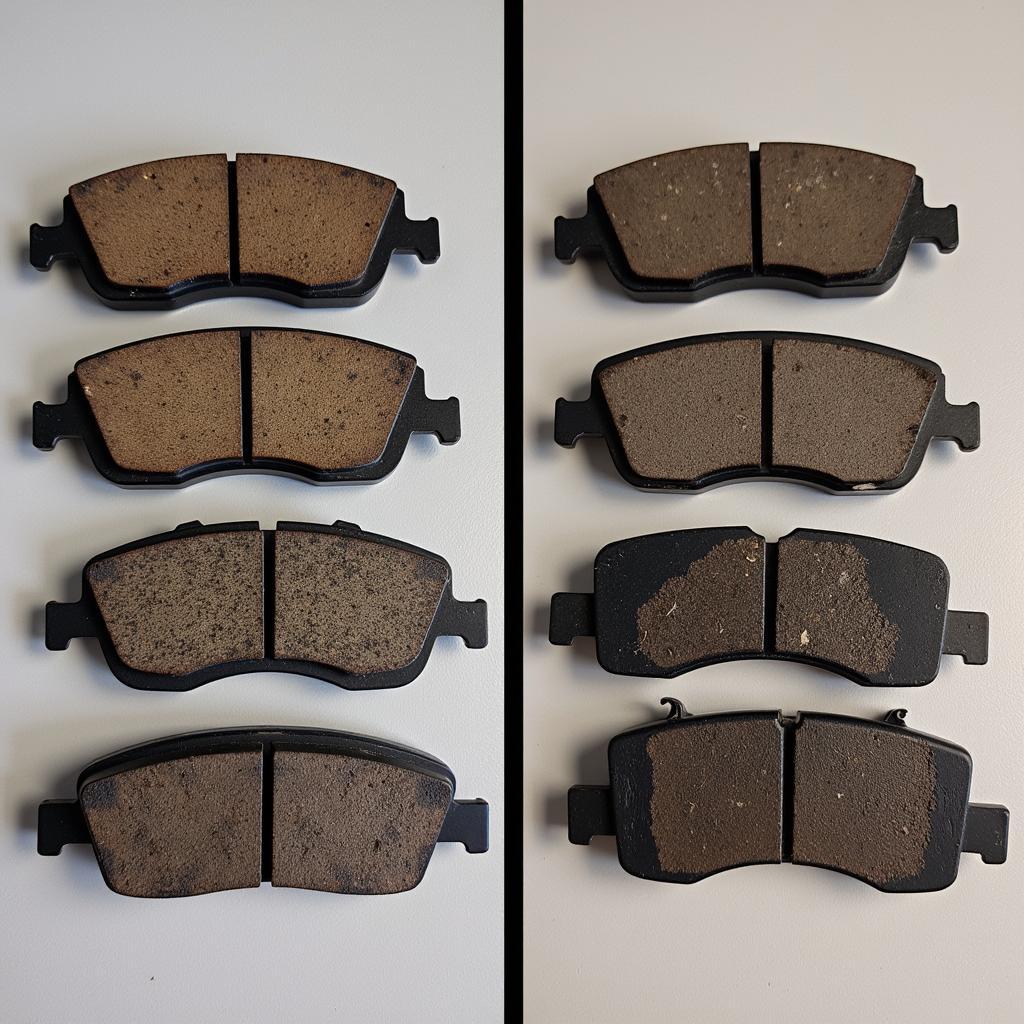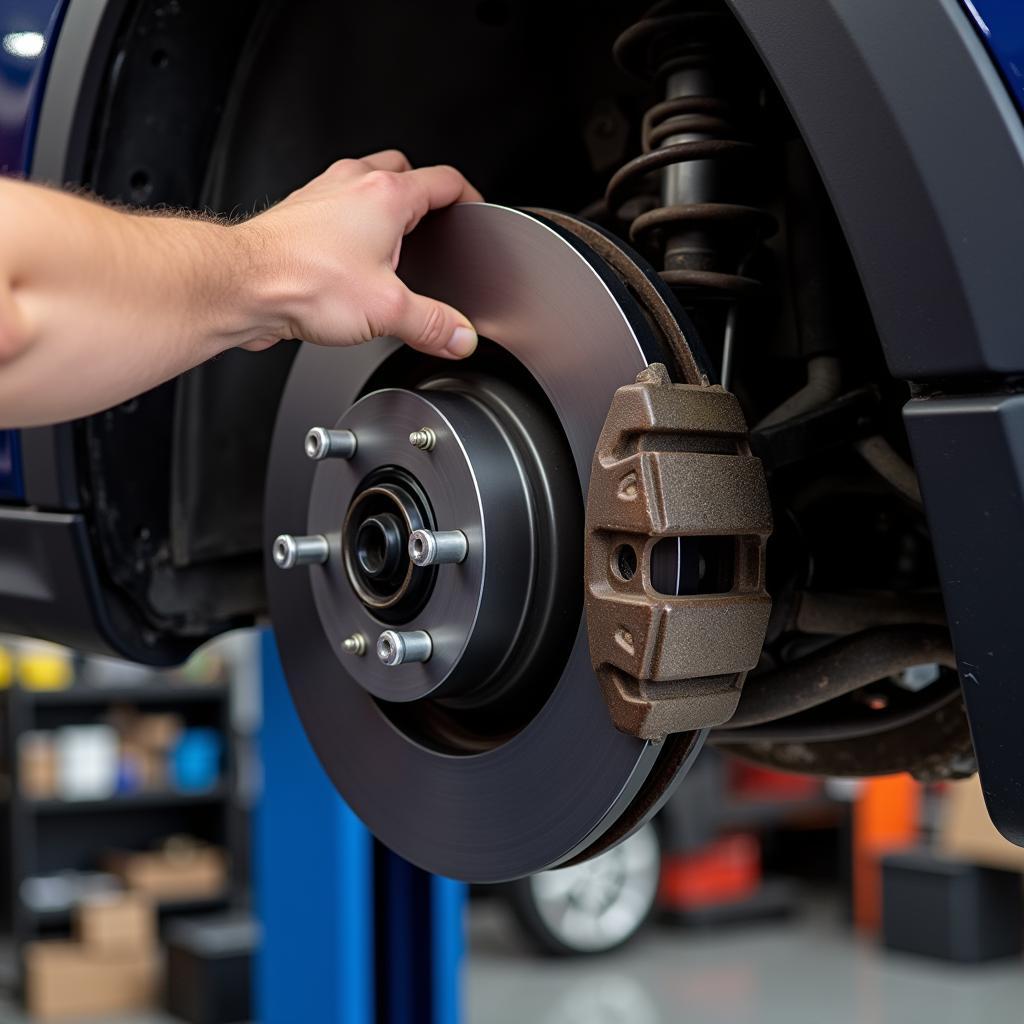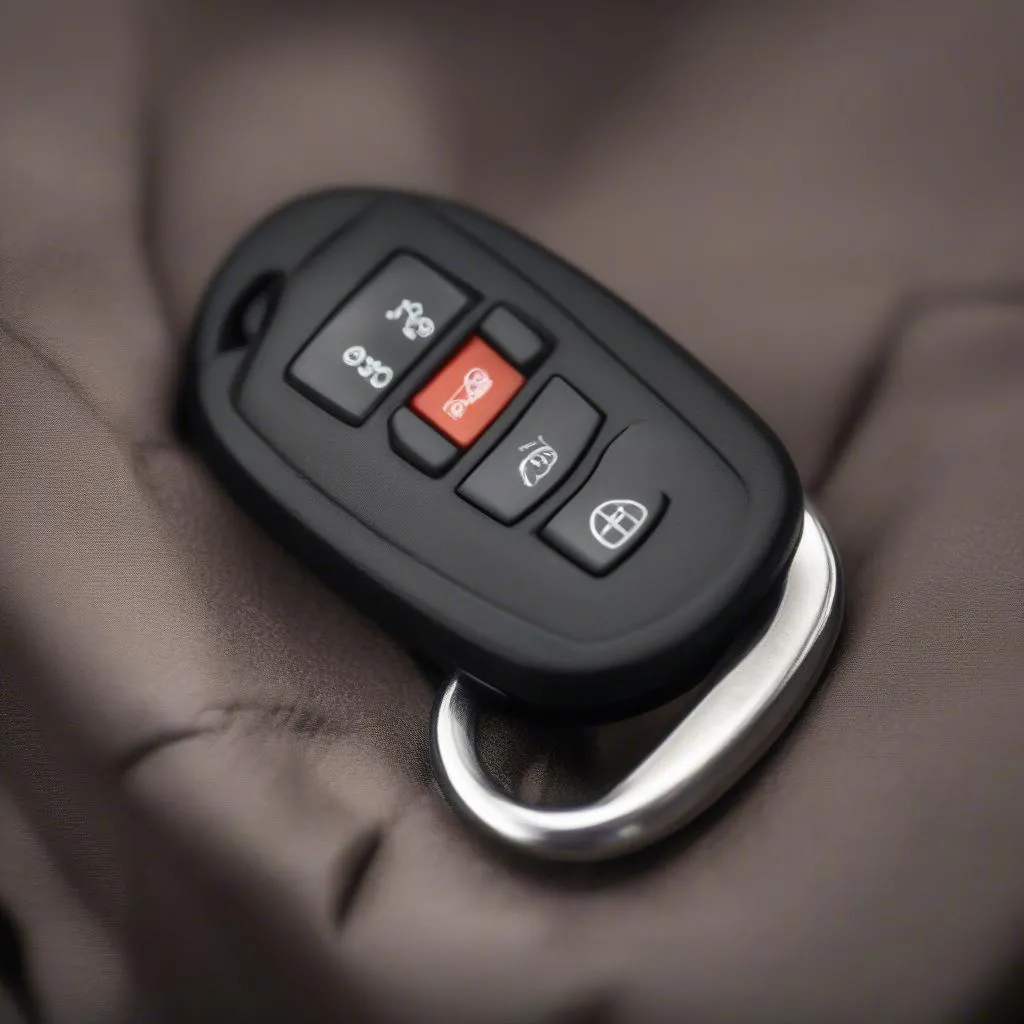The brake warning light on your dashboard is a crucial safety feature, and when it illuminates in your 2007 Toyota Camry, it’s essential to address it promptly. This light can indicate various issues ranging from low brake fluid to serious problems within the braking system. This comprehensive guide will help you understand the common causes of a 2007 Toyota Camry brake warning light and provide potential solutions.
Understanding Your Camry’s Brake Warning Light
The brake warning light, often symbolized by an exclamation mark within a circle or parentheses, serves as your car’s primary way of communicating brake system issues. When this light turns on, it’s crucial to determine the underlying cause to ensure your safety and that of your passengers.
Common Causes of a 2007 Toyota Camry Brake Warning Light
Several factors can trigger the brake warning light in your 2007 Camry:
-
Low Brake Fluid: This is the most common culprit. Brake fluid is essential for transmitting force from the brake pedal to the wheels, allowing your car to stop. Over time, brake fluid levels can decrease due to wear and tear on brake components.
What to do: Check the brake fluid level in the reservoir under the hood. If it’s low, carefully top it off with the correct DOT 3 or DOT 4 brake fluid specified in your owner’s manual. However, simply adding fluid won’t fix the problem if there’s a leak. Have a professional inspect your brake system for leaks immediately.
-
Worn Brake Pads: Brake pads are designed to wear down over time as they create the friction needed to stop your car. When the pads become too thin, the brake warning light will illuminate.
What to do: If you suspect worn brake pads, it’s crucial to have them inspected and replaced by a qualified mechanic. Driving with worn brake pads can severely compromise your braking ability and lead to costly repairs.
-
Faulty Brake Caliper: The brake caliper houses the brake pads and pistons. A sticking or seized caliper can cause uneven brake pad wear, pulling the car to one side and triggering the warning light.
What to do: A faulty caliper requires immediate attention. A mechanic can diagnose the issue and either repair or replace the caliper to restore proper braking function.
-
ABS (Anti-lock Braking System) Issue: The ABS system prevents wheel lockup during hard braking, improving vehicle control. If the ABS system malfunctions, the brake warning light may illuminate along with the ABS warning light.
What to do: Diagnosing an ABS issue requires specialized equipment. Take your Camry to a qualified mechanic or dealership for diagnosis and repair.
-
Faulty Brake Light Switch: While less common, a malfunctioning brake light switch can prevent your brake lights from illuminating and trigger the brake warning light on the dashboard.
What to do: A faulty brake light switch is a relatively simple fix. A mechanic can test the switch and replace it if necessary.
Troubleshooting Tips for 2007 Toyota Camry Brake Warning Light
Before rushing to a mechanic, try these troubleshooting steps:
- Check the Parking Brake: Ensure the parking brake is fully released. An engaged parking brake can trigger the warning light.
- Inspect Brake Fluid Level: As mentioned earlier, visually inspect the brake fluid level in the reservoir.
- Listen for Unusual Noises: Pay attention to any screeching, grinding, or clicking noises coming from the brakes while driving.
- Feel for Vibrations: Feel for any pulsations or vibrations in the brake pedal while applying the brakes.
 Worn Brake Pads Compared to New Ones
Worn Brake Pads Compared to New Ones
“Neglecting your Camry’s brake warning light can lead to dangerous driving conditions and costly repairs. At the first sign of trouble, a thorough inspection is essential.” – John Miller, Certified Automotive Technician
Preventing Future Brake Issues
Maintaining your Camry’s braking system is crucial for safety and longevity:
- Regular Brake Inspections: Have your brakes inspected at least once a year or every 12,000 miles.
- Timely Brake Fluid Flushes: Replace your brake fluid according to the manufacturer’s recommendations.
- Avoid Riding the Brakes: Prolonged braking, especially downhill, can overheat the brakes and lead to premature wear.
- Quality Brake Parts: When replacing brake components, opt for high-quality parts from reputable brands.
Conclusion
A glowing brake warning light in your 2007 Toyota Camry should never be ignored. By understanding the potential causes outlined in this guide and taking prompt action, you can ensure the safety of yourself and others on the road.
Remember, regular maintenance and timely repairs are essential for keeping your braking system in optimal condition and preventing future issues.


